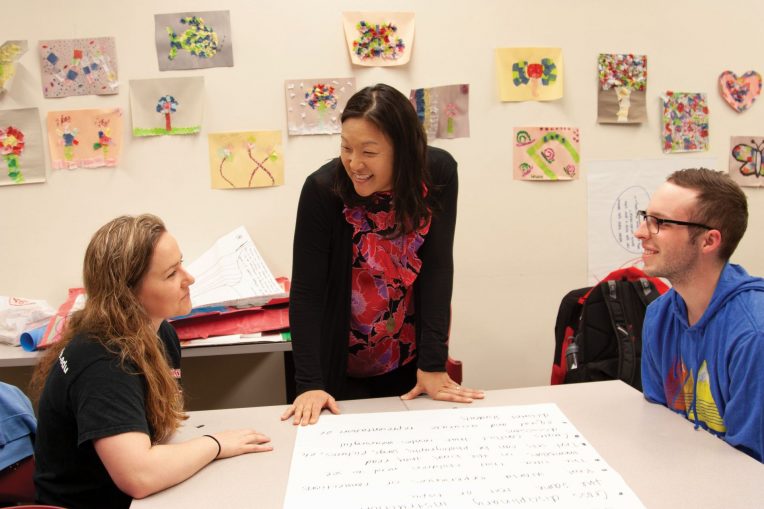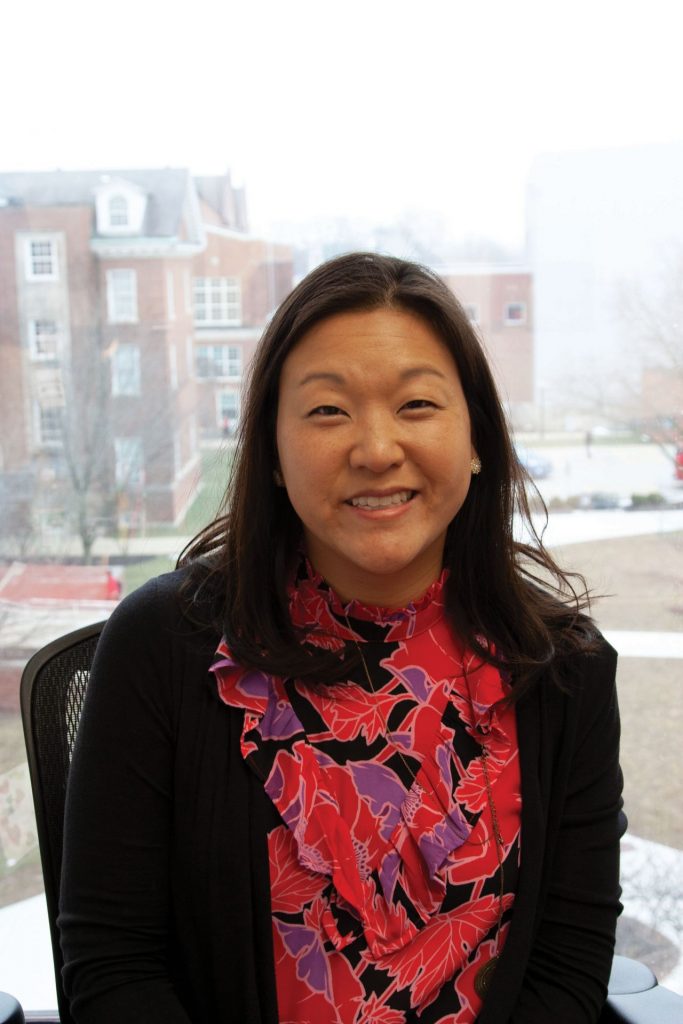For the past three years, Dr. Grace Kang, associate professor in the School of Teaching and Learning at Illinois State University, has cultivated a partnership with the Champaign Unit 4 School District to immerse the University’s teacher candidates into the greater Champaign community through the Civic Engagement Cohort.
Through this cohort, teacher candidates from Illinois State become heavily invested in the schools as well as the community they serve during their clinical placements. Kang, a member of Unit 4’s Education Equity Excellence committee and the treasurer for one of Unit 4’s elementary school’s PTA board, sees the positive experiences that benefit her Illinois State students and the students they serve.
“This cohort allows my students to be able to experience the diversity of the Champaign schools, and really apply what they are learning in the classroom about equity and diversity through practices in and out of their classrooms,” said Kang.
The cohort not only places junior-level students in elementary schools in Unit 4, but also provides several field trips in the Champaign community that allows teacher candidates to get a truer sense and fuller picture of the many organizations that partner with Unit 4. The cohort allows them to meet with many different principals, community leaders, and organization representatives.
“This cohort of ISU students Dr. Kang has created is always actively participating, learning, creating relationships, and positively impacting our student’s lives,” said Paula Partin, volunteer coordinator with Unit 4. “It is the very ‘boots on the ground’ definition of civic impact.”
Another benefit of the cohort is that the teacher candidates stay in the same block of courses at Illinois State, which creates opportunities during debriefing sessions to have in-depth discussions about their shared experiences in the same school district.
“I have heard from teacher candidates that this immersive experience has allowed them to get a more complete perspective of the community at large, allowing additional insight about their students’ experiences, backgrounds, and where they are coming from,” said Kang.
The cohort started with a pilot year to establish the program, but the pandemic greatly affected what Kang wanted to accomplish during the second year. However, the program was still able to provide a quality virtual experience for her students where the Teacher Candidates developed strong relationships and rapport with their students and cooperating teacher. Teacher candidates were able to enact a Teachers as Change Agents project last year, where they collaborated with an organization in the Champaign community on a solution to an issue important to the organization. Kang applied for, and received, a Civic Engagement Grant from the Center for Teaching, Learning, and Technology (CTLT) at Illinois State to help put their project plans into motion during this year’s cohort.
Made up of approximately 30 students, the cohort already has plans to visit many more organizations in person, host several interviews with local leaders and organizers, and immerse teacher candidates in Unit 4 classrooms. Teacher candidates have the unique experience of merging theory to practice both in the university and elementary classrooms.

The Civic Engagement Cohort provides an opportunity for teacher candidates to see that teaching is not a siloed profession—they build on the funds of knowledge, strengths, and assets of the students, families, and community at large. Illinois State University and Unit 4 School District have forged a University-School partnership that is established on mutual trust, strong rapport, and future hope to develop educators that are focused on diversity, equity, and civic engagement.
“So far, this cohort has helped further forge relationships in the district, providing diverse learning experiences for our students while also providing a service to their cooperating teacher and the community in general,” said Kang. “The goal is to create a win-win experience for all involved so that we can continue to produce quality teachers who not only teach their students but are leaders in their communities.”


